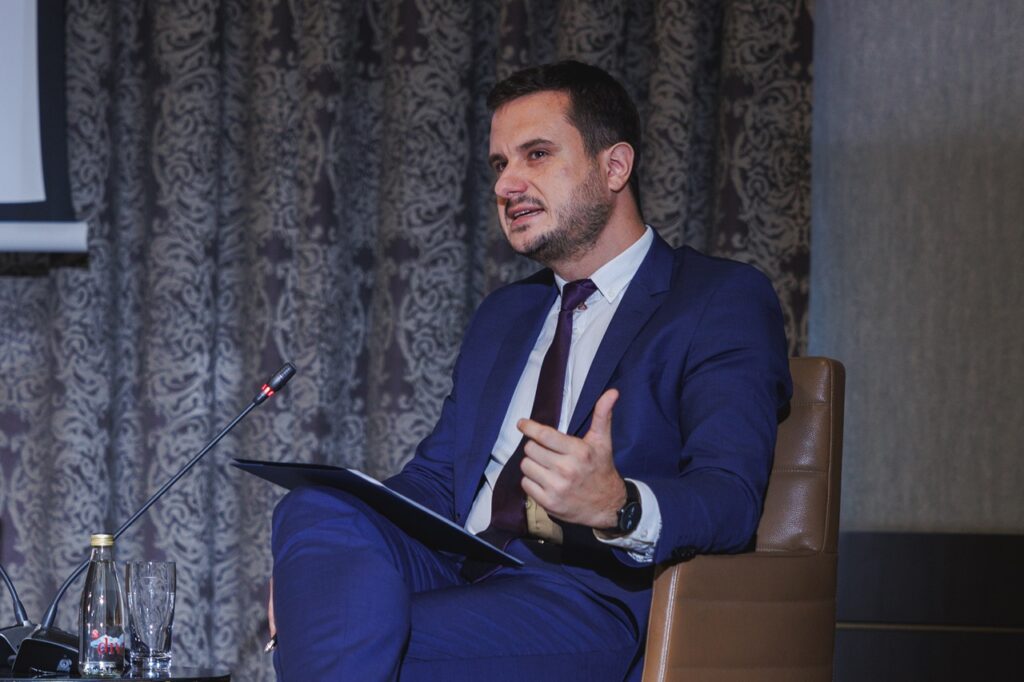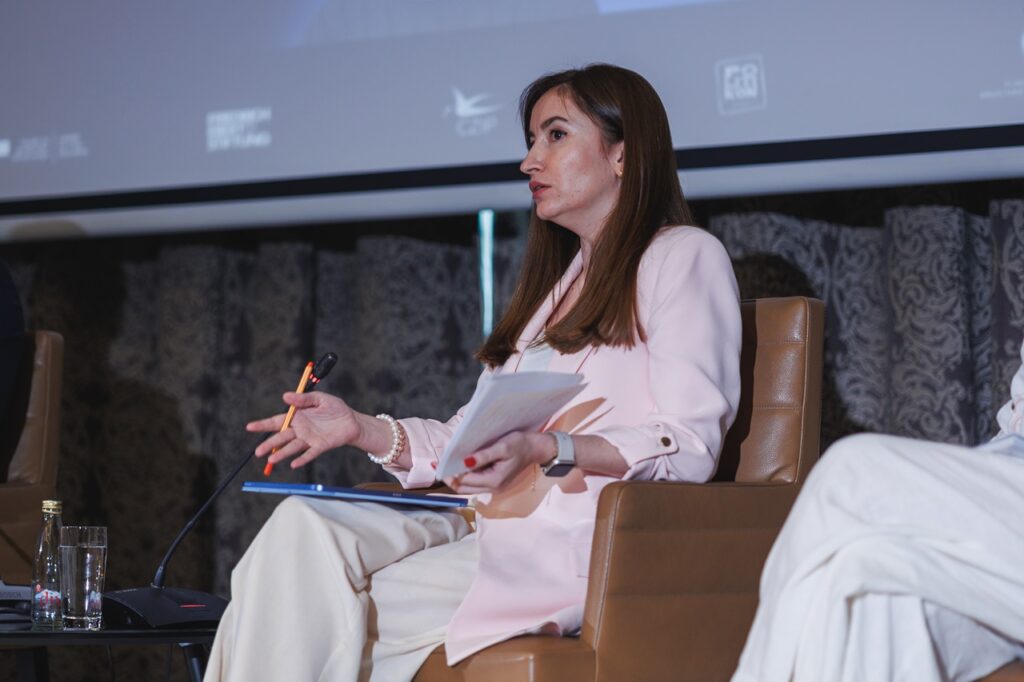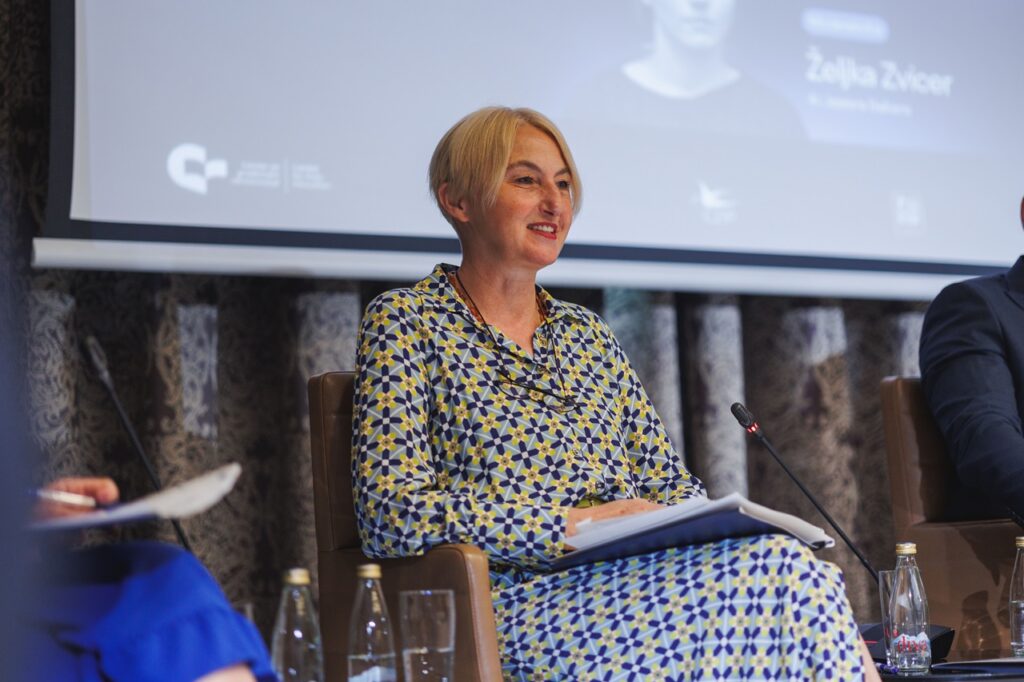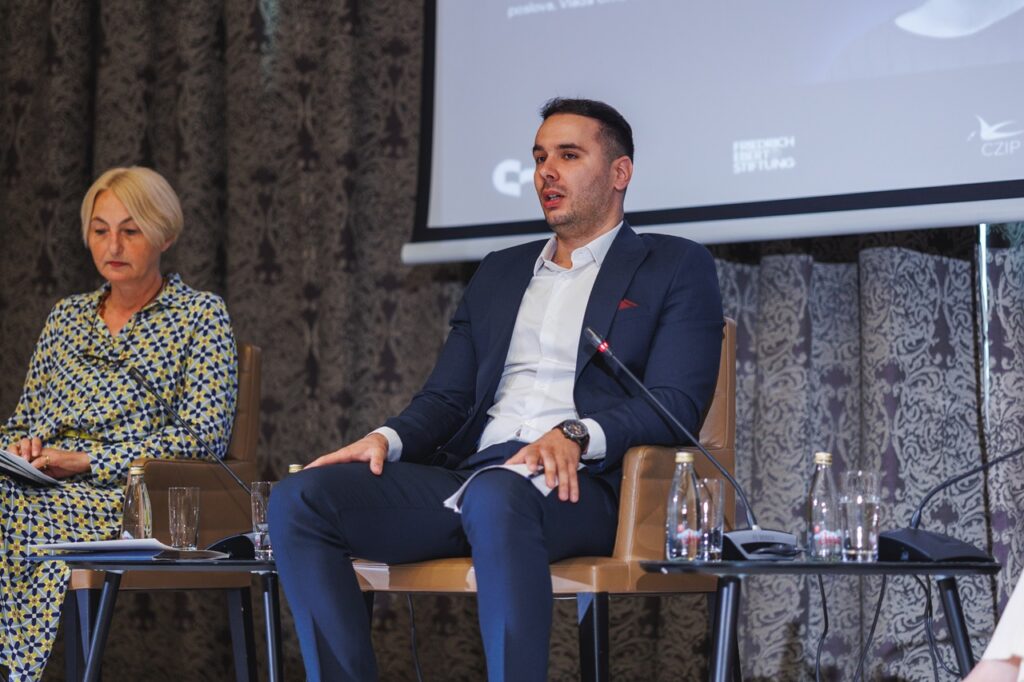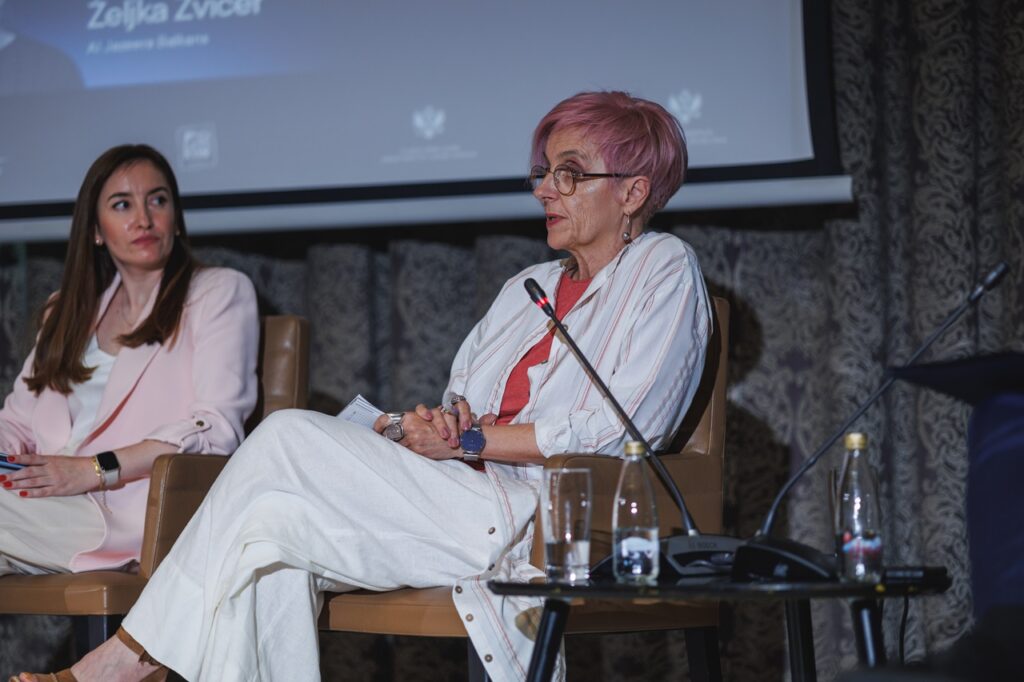The Government in Montenegro must respect the criticisms of civil sector organizations, as they represent society, it was emphasized at the conference The Path of Civil Society through the European Integration of Montenegro, organized by the Centre for Civic Education (CCE) as the conclusion of the project CSOs in Montenegro – From Basic Services to Policy Shaping – M’BASE, with the support of the European Union and co-financing from the Ministry of Public Administration.
During the central panel From Policy Shapers to Decision Makers: The Impact of NGOs on Montenegro’s Path to the EU, Montenegro’s chief negotiator with the European Union (EU), Predrag Zenović, stated that receiving a positive Report on the Fulfilment of Interim Benchmarks for the Rule of Law Chapters (IBAR) is an important moment and a significant achievement for the Government, Parliament, the entire civil society, and the community.
“That is an important step that opens a new chapter, and it seems to me that once again large regatta of candidate countries is moving towards the EU, with Montenegro at the forefront of this regatta,” he said.
He also noted that one of the reasons for the prolonged fulfilment of interim benchmarks is that Montenegro has been grappling with the process of democratic transition and consolidation, which has impacted judicial reforms. He cited the change in methodology, which he said never favored Montenegro, as another reason.”The methodology was changed in 2020 to stipulate that no other chapters can be closed until the interim benchmarks in chapters 23 and 24 are met. This has demotivated both the Commission and the administration regarding other technical chapters,” Zenović explained.
He emphasized that the civil sector made a tremendous contribution to the entire process, including obtaining the IBAR. “In a country on the path of democratic transition, and even closer to democratic consolidation, civil society organizations have an invaluable contribution,” Zenović stated.
He reminded that the civil sector has been part of the negotiation structure from the beginning but also stressed that the civil sector and the government can never be “in the same shoes,” as perspectives and responsibilities differ. “Despite these differing perspectives, it does not mean we cannot have the same goal. The government must respect the criticisms coming from civil society organizations, as they represent the society,” said Zenović, noting that the negotiation process under the current government is very inclusive.
Civil activist Dina Bajramspahić stated that civil society in Montenegro ensures a plurality of opinions but warned that there has been a kind of disintegration of efforts between the government and civil society in working on the rule of law. “While civil society remains very dynamic and works intensively on projects that contribute to the rule of law, the synergistic effect of joint work between civil society and institutions is lacking,” Bajramspahić said.
She added that due to poor experiences and results in cooperation with institutions, the civil sector started working on projects that do not heavily depend on institutions. “As a result, there has been a decline in the interest of civil society representatives in participating in working groups, while at the beginning of negotiations, it was a matter of prestige. At one point, ten NGOs had a member in the working group for chapter 23, while in recent years, we have only three members,” said Bajramspahić, emphasizing that the situation is even worse regarding chapter 24.
Bajramspahić stated that reforms in chapters 23 and 24 have not been sufficiently shaped, noting that civil society supported obtaining the IBAR and did not want to jeopardize that important goal. “We still have to conduct a more detailed analysis of the final benchmarks, which are written quite broadly. We see that certain interim benchmarks are considered fulfilled, even though more work is needed on them. If we do not substantively engage in their monitoring, if we do not alert what is missing, there remains political space to decide that something is fulfilled, even though we might not agree,” Bajramspahić said.
She believes that previous experience should serve as a lesson on how to more effectively monitor benchmarks and maximize the process as an instrument for societal change.
Economic analyst Mila Kasalica pointed out that EU accession and the discussion on funds are closely linked. “The EU accession agenda is a model full of complex projects serving public policies of developing countries, candidate countries – beneficiaries of funds, framed by various activities and segments that are interconnected at every step, in every phase, every week, through financial expressions and report verifiability,” she said.
Kasalica explained that the three key financial perspectives for Montenegro are the three IPA funds, noting that IPA III is just starting to be applied while about 96% of IPA I funds have been utilized, and over 80% contracted and nearly 70% utilized for IPA II.
“We have had a very positive contribution from that programme. Two years ago, we received €30 million for mitigating the consequences of the energy crisis,” said Kasalica, adding that work is now underway on a new arrangement through the Western Balkan Growth and Development Fund.
She stressed that EU funds should also be viewed in conjunction with the national budget of the state and how it correlates with those funds. “There are over 20 bilateral, trilateral, and multilateral supports that need to be strategically set, thought through, evaluated, and implemented,” she explained.
Executive Director of the Alfa Centre from Nikšić, Miloš Perović, stated that the impact of civil society is equal to the impact of citizens themselves in decision-making processes.
“Civil society, figuratively speaking, pressures institutions and through that, decisions are made that are representative for citizens. The role of civil society is very important in overseeing and controlling all reform processes,” emphasized Perović.
He added that he believes the role of civil society in European integrations will continue to be emphasized in the future.
Speaking about the IBAR, Perović assessed that recent attention has been more focused on technical issues, such as the IBAR, adding that it is much more important to communicate to citizens the benefits of EU membership.
He emphasized that support for Montenegro’s EU membership has never fallen below 50% and has only grown, unlike Atlantic integrations, noting that “EU integrations were used as a softener for Atlantic integrations.”
“I thought that with such support from citizens for EU membership and all the promises from parties, we would reach the final benchmarks much earlier,” said Perović.
He pointed out that the fact that Montenegro, as a candidate country, is the only one to include CSOs in negotiation processes through membership in working groups does not represent complete cooperation and partnership as long as CSO suggestions and conclusions are often viewed as hostile and some form of foreign influence.
Perović emphasized that Montenegro must not “rest on its laurels” with a small victory like obtaining IBAR, but must continue with projects and communicate with citizens, especially in terms of informing and educating young people who will experience the benefits of EU membership.
Coordinator at the Centre for Women’s and Peace Education ANIMA, Ervina Dabižinović, highlighted that there is not much difference between the values of civil society and those of the EU, and no significant alignment is needed. “Our citizens recognize these values first, because through the M’BASE program, we had direct contact with citizens, and they fully understand what makes their lives better,” said Dabižinović.
She emphasized that a prerequisite for any discussion of community integration is confronting the past. “The war industry and crimes have been transferred into our present, which is why certain topics appear on the agenda of political decision-makers even though they do not belong there,” said Dabižinović.
She mentioned that institutions are emerging that support the agendas of political elites. “The right-wing is strengthening, and the secular character of the state is being eroded as the boundary between church and public life is blurred. I believe we are in a dangerous moment where civil society should have even more responsibilities alongside all the tasks we are already undertaking,” highlighted Dabižinović.
As she said, the process of confronting the past is not a one-time resolution; it’s a broader societal action that must unfold continuously, as seen in the example of denazification in Germany.
MINA

